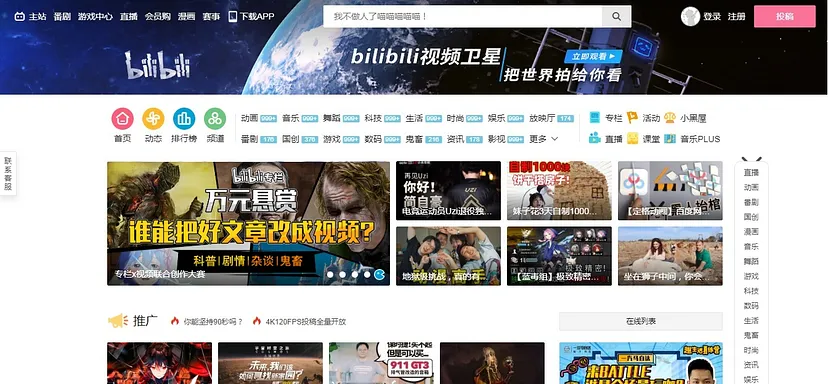The Asian market is expected to grow dynamically through 2024, surpassing the US$149.30 billion sales predicted for the Western markets, which have experienced a slowdown in growth. The most crucial query is how to join the team.
Let's discuss what you should know about promoting apps and games on mobile devices in China.
1. Know the ISBN policy for game developers
For their business to be conducted lawfully in China, publishers and producers of video games who have titles available there or wish to enter the market must obtain an ISBN (International Standard Book Number). To legally release your PC, console, or mobile game in China, you must get the ISBN, an obligatory government approval granted by the State Administration of Press & Publication in China.
Here’s a great article on how to navigate China’s ISBN policy.
2. Understand the multiple stores for game purchases
The situation is simple in Western nations: you have the App Store and Google Play. On the other hand, Asia offers an alternative situation.
Google and its services are prohibited in China, even though the App Store is accessible. In place of Google Play, there are about 400 regional Android stores, each with a focus. A few of these shops only sell video games. It's most straightforward to deal with these stores through local publishers.

3. You’ll need a local publisher
A publisher is required to release a game in China. You will have to undergo an intricate registration process, which includes possessing a Chinese phone number and proving that you know the language.
4. Be aware of user purchasing habits
China's average revenue per mobile user (ARPU) was 49.3 yuan in 2023 or roughly $6.78 per user.
Remember that numerous Asian users are not used to making credit card payments. WeChat Pay and Alipay are the most popular payment methods in China for in-app purchases.
5. Know the possible promotion channels
There are no Western platforms available in China; they are all blocked, so you will have to use local substitutes.
Baidu is the main search engine, although there are a number of other SEO and SEM platforms (Shenma, Sogou, Bing, Xiaohongshu, etc.).
The environment for socials is as follows:
- Messenger Apps: QQ, WeChat.
- Social networks: Weibo
- Video: Youku, Douyin, Kuaishou, Tencent Video, Iqiyi, and Mango TV
💡 Users often log into apps using their preferred social networks. In China, sign-ins are usually done using WeChat or a phone number.
Baidu provides advertising options that are comparable to those of Google Ads.
The most popular forums and blogging sites include Xiaohongshu (also called RED and often referred to as "Chinese Instagram"), Baidu Tieba (the Chinese Reddit), Zhihu (the Chinese Quora), Douban (the Chinese Medium), and Bilibili.
In China, mobile game and app advertisements rely heavily on offline marketing. Advertisements can be seen at bus stops, aboard buses, and in subways every day. It is not just big firms that may benefit from offline marketing; organizations of all sizes can use it, and it can be surprisingly inexpensive.
Promoters frequently stop by college campuses and distribute fliers with QR codes that allow users to download apps. Users who download the app from the flier occasionally receive in-app goodies. Chinese users frequently believe that an app developer produces a high-quality product if they invest in offline advertising.

6. Understand dialects: Traditional VS Simplified Chinese
Traditional Chinese is spoken in Taiwan and Hong Kong, while simplified Chinese is used in mainland China. Even though traditional characters are universally understood by Chinese users, reading them can seem strange and uncomfortable. You will have to choose whether to localize into both or just one of them.
7. Know how to get your app approved by the Chinese commission
The Chinese commission has the last say on whether to accept an application. Skeletons, blood of any hue, and even the faintest suggestion of "improper" moral principles are prohibited. For instance, Full HP had to rebuild a dress-wearing, innocuous, pixelated male fairy and turn him into a suitably dressed Chinese manager.
The Chinese commission also forbids using English terminology in apps, not even the most fundamental ones like "winner." All text must be in simplified Chinese.
8. Understand local holidays, traditions, and habits
People often spend more time on their smartphones over the holidays, which boosts in-game revenue significantly. China's most important holidays are the Lunar New Year and the Dragon Boat Festival.
In China, it's customary to give money in red envelopes, or "hong bao". People can send each other virtual hong bao through WeChat messaging. You can use this idea to create special bonuses for your app.
Interestingly, Chinese gamers enjoy playing eSports games, and offline eSports competitions are frequently held in Shanghai and Hong Kong. This is related to the Chinese's great affinity for group activities and team play.
9. Have a handle on the underlying meaning of numbers and colors
Since the word for "four" sounds like the word for "death," it is avoided, and the number four is seen to be unlucky in China. Conversely, the fortunate number is eight. This could be relevant to apps that have random games.
Additionally, exercise caution when using the color red. Character names should not contain red characters, as, in Chinese tradition, names printed in red are considered curses.
10. Understand UI/UX preferences
Asian apps differ from Western apps in their style. They frequently have young designs with adorable animals and big heads, screens full of information, and cartoon and anime characters. Whereas Western design tends to be more minimalist and basic, many apps attempt to fit all the required information onto one screen.
Popular Chinese website Bilibili has an Asian aesthetic and feel to it:

Every nation has its laws and customs. Alconost provides the cultural knowledge of more than 800 native speakers of languages who translate into more than 100 languages while upholding global ISO standards and quality control procedures.
Contact us to help bring your product to new markets.





